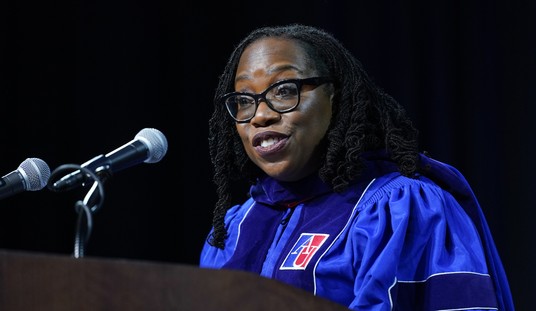Seriously. Some dieticians are saying “let them eat cake” to teach kids how to regulate their eating habits.

I am skeptical.
I am not credentialed, and these dieticians are, but I have a superpower that they apparently do not: I can use my brain.
Crystal Karges celebrated her youngest daughter’s fifth birthday last month with a gooey chocolate cake covered in white frosting and rainbow sprinkles. The next morning, she served her five children the leftover slices at breakfast alongside fruit, eggs, sausage and milk.
Ms. Karges is among parents, dietitians and doctors who advocate giving children more freedom over what they eat including, at times, high-sugar, high-fat and highly processed foods. They said the approach helps children develop healthy dietary habits and protect against disordered eating—or dysfunctional eating behaviors—which affects more than 20% of children globally, according to a recent meta-analysis in the journal JAMA Pediatrics.
“We are trying to control our kids when in reality, they need autonomy,” Ms. Karges, who is a dietitian in San Diego, said.
Ms. Karges and her peers are pushing back against guidance from some pediatricians and public-health officials that they say is too prescriptive and risks fostering harmful eating habits.
I do have to admit that of all the experts in the universe, dieticians are the easiest ones to ignore. Even more than economists, they famously disagree, and unlike economists, when they do get together and agree they are wrong 100% of the time.
Admittedly this is not a topic on which all nutrition specialists agree. Most still believe that feeding kids nutritious food is superior to an all-cake and Cheetos diet.
The conventional wisdom among nutritionists on the basic eating habits of kids has been trending toward sanity in recent years: fruits, vegetables, limiting highly processed foods.
You know, as human beings generally ate before we all blew up to look like the obese tubs of blubber too many of us look like now.
About a fifth of children in the U.S. are obese, according to the CDC. The rate of increase in body-mass index, a screening tool doctors use to measure excess fat, more than doubled among children during the pandemic. Many children aren’t eating enough vegetables and fruit and have sugary drinks regularly, according to the CDC. Diets high in sugar and trans-and-saturated fats contribute to obesity, research has shown, which is linked to cardiovascular problems, diabetes and other conditions.
“Sometimes kids need some external help in saying, ‘OK, you know, that’s probably enough,’” said Claudia Fox, a pediatrician and co-director of the Center for Pediatric Obesity Medicine at the University of Minnesota Medical School.
Of course we now live in an age where the medical profession is rejecting common sense and the hard-won knowledge won through bitter experience. Gender-bending doctors are embracing the confusion and bad choices of children, and apparently, that tendency is expanding beyond their little slice of medicine.
Proponents of more-permissive eating said parents shouldn’t consider weight when deciding what to feed their children. “It’s incredibly traumatic for a child to be given the information that because of their body size or the way they look, or their weight, they can’t be trusted with food,” said Sumner Brooks, a dietitian and co-author of “How to Raise an Intuitive Eater: Raising the Next Generation with Food and Body Confidence.” Dieting can predispose children to obesity and eating disorders, studies have shown.
Diana Rice, a dietitian in Oklahoma City, said she counsels parents on how to encourage their children to follow their own tastes and hunger signals to fullness. Eventually, even sweets-loving children will tire of junk food and gravitate toward fruits and vegetables, she said.
“We have to trust children to meet their biological needs,” Ms. Rice said.
No. No, we don’t. That is the last thing we should do, in fact. Children have a long and glorious history of making bad choices. It’s why we child-proof homes, learn the fastest route to urgent care and keep shooing children away from stoves.
Don’t consider weight when deciding what to feed children? Are these “experts” assigned to create the next generation of MAiD patients? Of COURSE, you should consider weight when deciding what to feed your kids.
“Pack cookies in their lunch box. Serve ice cream after dinner. Make it a regular part of their life so kids learn to self-regulate around those foods,” she said.
Ms. Rice said she often serves her daughters, ages 5 and 7, snack plates of caramel corn, cheese, sugar snap peas and Doritos. At breakfast, she puts out a Hershey’s Kiss with her children’s toast, sunflower seed butter and fruit. When they are having dessert, they can have as much as they want, she said, and they usually stop at a small serving of chocolate or ice cream.
“They need to have that trust that the food is going to be available,” she said.
I think you can be certain that these experts also take their children to Drag Queen Story Hours, regularly consult with gender doctors, and drop their kids off with the local pedophile for child care.
I suppose I shouldn’t be surprised that such people exist; what I can’t understand is why the Wall Street Journal is giving them real estate on their pages to spread their gospel of child murder.
We live in an age of idiocy.








Join the conversation as a VIP Member